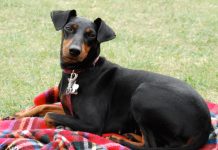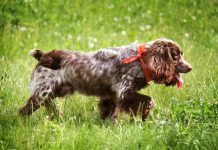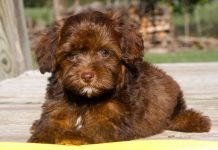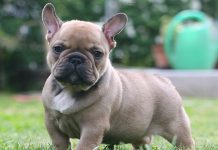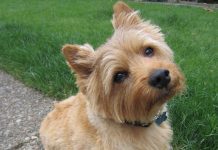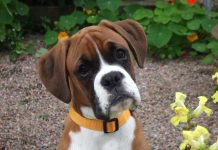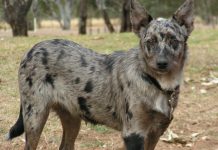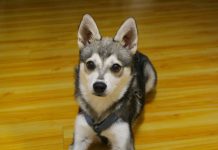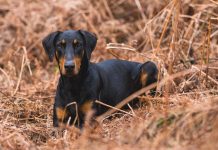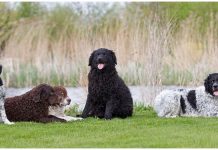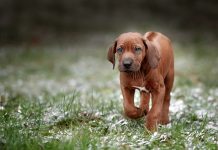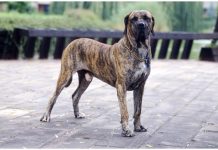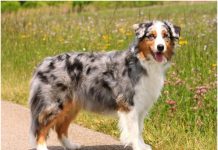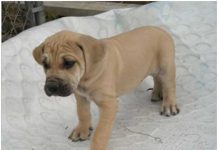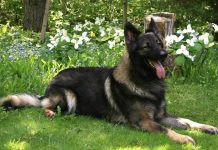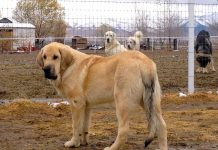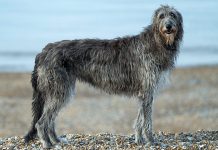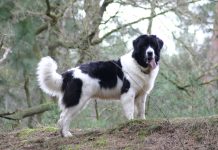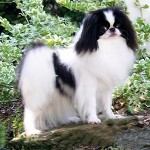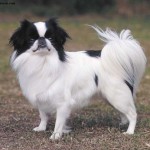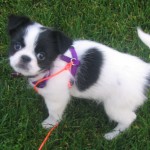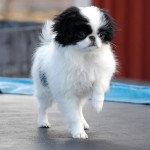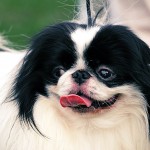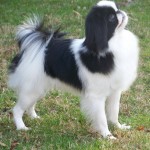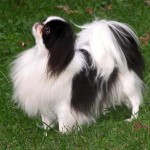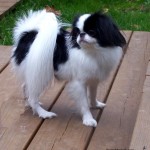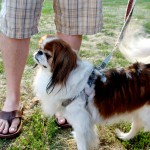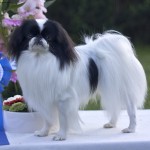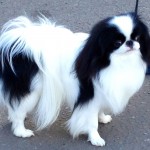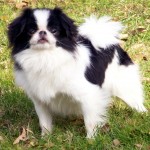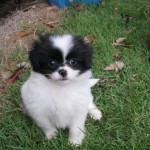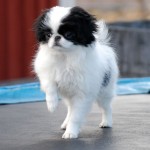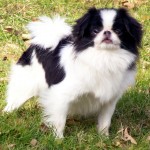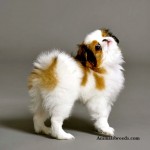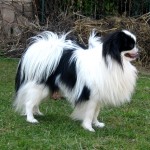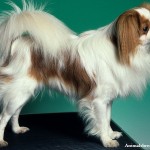Perhaps more than anything else, they are sleep constantly. This can be a danger because they love being underneath blankets and if they are on your bed and you sit on them then that is terrible. Dogs are fragile and small dogs (such as the Japanese Chin) are even more so. They also have a reputation of being aristocratic. I do not know if Paris Hilton has one, but she should.
History and Health :
- History :
These dogs came to Japan most likely from China but others theorize that they were given first to the Japanese royalty by the Korean rulers in 732 AD. However, fixed dates and locations are unknown. They were introduced to the West most likely in 1853 when an American naval Commodore, Matthew Perry, visited Japan, although some believe that the Portuguese obtained them and introduced them to Europe about 200 years earlier.
- Health :
Because of their size and head characteristics, Japanese Chins are subject to slipping kneecaps, early onset heart murmurs, cataracts and other eye problems, and breathing problems. Inexplicably, they tend to be highly sensitive to corn. A diet with no corn in it will prevent skin and allergy conditions.
Temperament & Personality :
- Personality :
These dogs are friendly with not only other dogs but also cats. They are wonderful with small children but perhaps not with infants who do not yet know how to interact with pets. They are good even with strangers although they may alert you when someone is at the door.
- Activity Requirements :
They do not need much exercise, and should be indoor dogs. A daily walk and normal play is sufficient for them.
- Trainability :
It can take up to four months before they are fully house-trained but after that, it is second-nature. They are naturally obedient and can learn tricks.
- Behavioral Traits :
There are many descriptions of them. Most commonly, they are perky, playful, willing to please, adores comfort, cuddling and snuggling and is therefore a great lap dog. Or perhaps a lap cat, as they are alert, intelligent, independent, clean its face with its paws, and even climb, all like cats.
Appearance & Grooming :
- Appearance :
Most of them are black & white, with black patches covering their left and right eyes and their long-haired left and right ears, with various patches of black throughout their bodies. Others have brown patches in these areas.
- Size and Weight :
They are almost never more than a foot (30 cm) in height, and are most likely 7 to 9 lbs (3.2 to 4.1 kg) although they have been known to be 3 lbs (1.4kg) or as much as 15 lbs (6.8 kg)
- Coat and Color :
They have longer hair than do most domestic dogs, especially on their ears and tails. They are black & white, although a smaller number are brown & white.
- Grooming :
It is easy to groom your Japanese Chin as it needs to be brushed only twice a week. However, the dog sheds almost all of its hair each year so be sure to have a vacuum cleaner.
- Body Type :
They are small and light, ideal for being a lap dog, which they love being.
Characteristics :
- They are wonderful with children, but perhaps should stay away from infants.
- They are very friendly with cats.
- They like other dogs as well.
- Japanese Chins are trainable although puppies may be slow to learn how to be house-trained.
- Unfortunately, they do tend to shed and they tend to have longer hair.
- They may alert you if someone knocks at the door, but are not scary enough to frighten anyone.
- They are quite intelligent, and incorporate the best of cats and dogs.
- Grooming them is fairly easy and quick.
- They are quite popular and have various dog shows devoted to them. It would not be surprising if Paris Hilton has one.
- They are quite adaptable and yet, at the same time, consistent. They love praise and comfort and will be devoted to you when you provide these.
- They, themselves are often allergic to corn and they do have longer hair potentially causing trouble if you have allergies
Tasty Tidbits :
The most important things to know about Japanese Chins are that they are fragile, need a lot of companionship (and may suffer from separation anxiety without it), need grooming so that their long hairs do not become matted, and ought to interact frequently with other people (such as neighbors and friends). Because of their unique physical characteristics, they tend to be more sickly than other breeds of dogs. Thus, be sure to have a good pet medical insurance plan.
Care :
It is very easy and fun to take care of your Japanese Chin. Just show him enough love and attention and he will do the same for you. It must be noted that they cannot live in hot and humid climates. Veterinarians ought to already know this, but you should also be aware that they cannot tolerate anesthesia.
Feeding :
Again, they are usually allergic to corn. Also, they need good dietary fiber as they will develop impacted anal glands without it. They ought to be fed twice a day, with meals totalling ¼ to ½ of a cup.
Photos, Images, Pics, and Pictures of Japanese Chin :
Information and Facts of Japanese Chin :
- This dog’s name is Japanese Chin.
- They are also known as the Japanese Spaniel or simply Chin.
- Although it is called “Japanese” it is widely accepted that they came from China.
- They are small and considered to be a lap dog.
- They belong to the Toy group of dogs.
- The average lifespan of these dogs is 10-12 years.
- They are all virtually the same size, ranging from 8-11 inches (20-27 cm).
- There is a great variety of weight but most of them are 7-9 lbs (3.2-4.1 kg).
- The majority are black & white although some are brown & white, and they have black or brown patches over the eyes.
- You should expect to pay $1000 to $2000 although half of them are $650 and under.
- Perhaps they should be called Sleeping Chin as they sleep a lot, and love to sleep under blankets and pillows.
- They are closely related to the Pekingese and the Tibetan Spaniel.
Also Read: Unlock Opportunities: Learn How to Apply for Bank of America Credit Card

